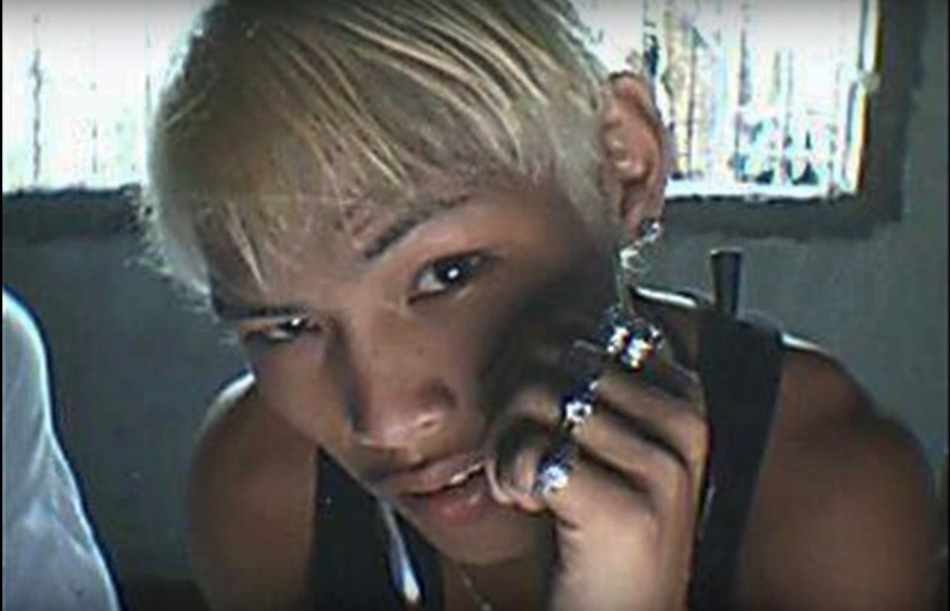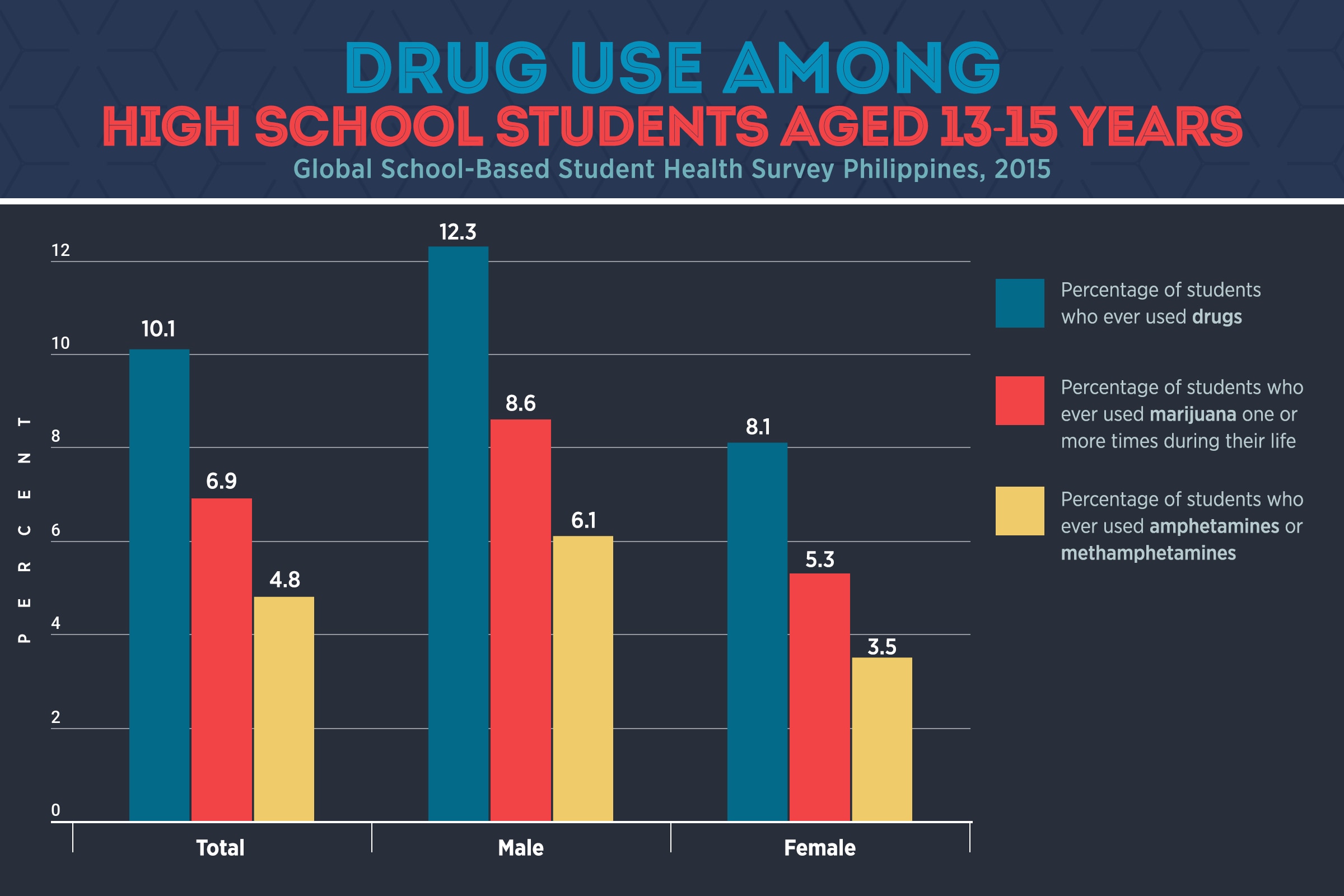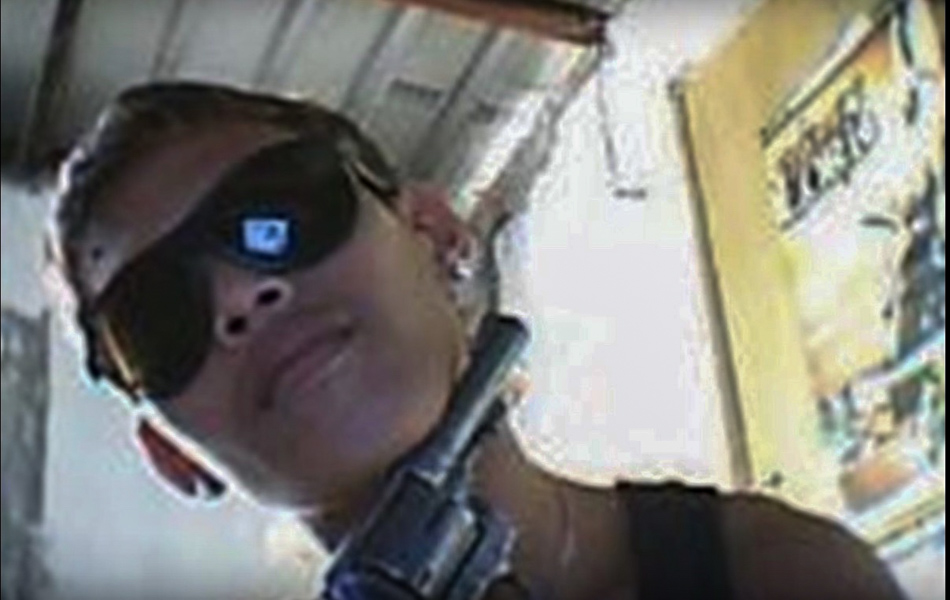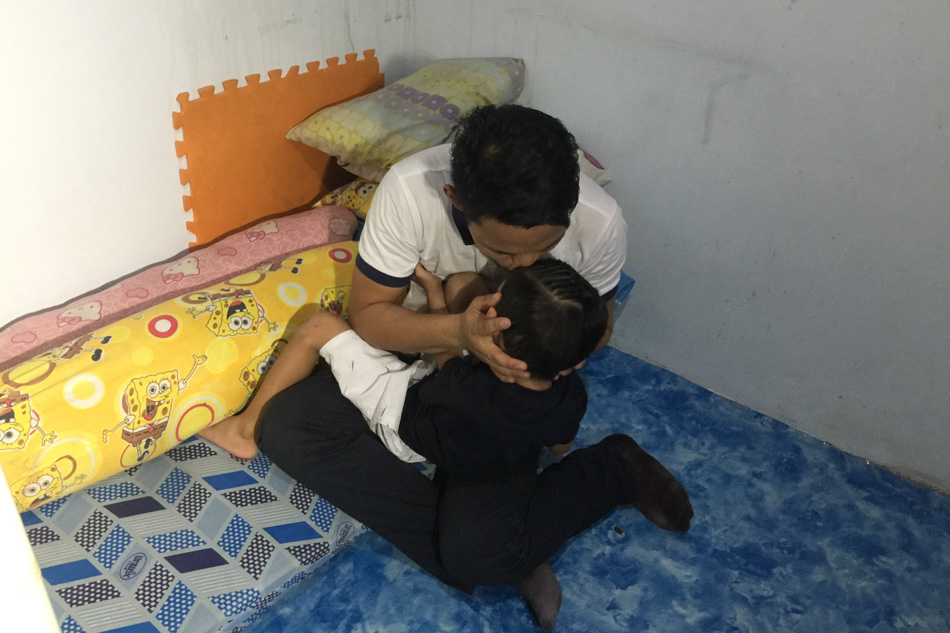Addicts start young in school (Part 1) | ABS-CBN

Welcome, Kapamilya! We use cookies to improve your browsing experience. Continuing to use this site means you agree to our use of cookies. Tell me more!
Addicts start young in school (Part 1)
Addicts start young in school (Part 1)
Gigi Grande,
ABS-CBN News
Published Jun 20, 2018 08:34 PM PHT
Part 1
Part 1
WHEN he was nine years old, Rod Tongol lived a “miserable life.” His father had died. He had to live with an uncle who maltreated him. He hated school.
WHEN he was nine years old, Rod Tongol lived a “miserable life.” His father had died. He had to live with an uncle who maltreated him. He hated school.
Rod found solace in friends who roamed the streets of Metro Manila. They introduced him to rugby. The first time he tried sniffing it, he thought he had found a way to escape the misery.
Rod found solace in friends who roamed the streets of Metro Manila. They introduced him to rugby. The first time he tried sniffing it, he thought he had found a way to escape the misery.
Now 27, Rod recalled in an interview with ABS-CBN News how he got hooked on prohibited drugs at an early age.
Now 27, Rod recalled in an interview with ABS-CBN News how he got hooked on prohibited drugs at an early age.
"Nawawala ako sa sarili ko ng ilang minuto,” he said of his first time. “Masarap ang pakiramdam, parang hindi ko maalala yung mga problema ko. May tumutugtog lang sa isip ko."
"Nawawala ako sa sarili ko ng ilang minuto,” he said of his first time. “Masarap ang pakiramdam, parang hindi ko maalala yung mga problema ko. May tumutugtog lang sa isip ko."
ADVERTISEMENT
When he turned 11, Rod met a woman who offered to reunite him with his mother whom he had not seen for years. He was full of hope when he arrived at the appointed time in Payatas, Quezon City. He thought his life would take a turn for the better.
When he turned 11, Rod met a woman who offered to reunite him with his mother whom he had not seen for years. He was full of hope when he arrived at the appointed time in Payatas, Quezon City. He thought his life would take a turn for the better.
But his mother turned out to be a drug dealer. Her "friends" who frequented their house, he would learn later, were snatchers, holdup men, and car thieves.
But his mother turned out to be a drug dealer. Her "friends" who frequented their house, he would learn later, were snatchers, holdup men, and car thieves.
‘The boss’
By 2003, at age 12, Rod was not just using, but also peddling marijuana and methamphetamine hydrochloride, widely-known as “shabu,” right within school premises.
By 2003, at age 12, Rod was not just using, but also peddling marijuana and methamphetamine hydrochloride, widely-known as “shabu,” right within school premises.
"Sa school ako sumisindi, sa likod ng bakod, sa ilalim ng puno,” he said. “Kapag ang isang lugar natambakan na ng upuan, dun na namin pinapasok yung mga iligal na gawain. Wala naman kasing teacher dun at wala ding cctv nuon.”
"Sa school ako sumisindi, sa likod ng bakod, sa ilalim ng puno,” he said. “Kapag ang isang lugar natambakan na ng upuan, dun na namin pinapasok yung mga iligal na gawain. Wala naman kasing teacher dun at wala ding cctv nuon.”
Barely 5 feet tall, Rod yielded influence and power on campus. "Binebentahan ko yung mga nasa high school, pero nasa elementary lang ako. Minsan yung Grade 5 o Grade 6 pumupunta sa akin, nakikipagkita sa CR. Nagaabutan kami ng pera o marijuana o drugs."
Barely 5 feet tall, Rod yielded influence and power on campus. "Binebentahan ko yung mga nasa high school, pero nasa elementary lang ako. Minsan yung Grade 5 o Grade 6 pumupunta sa akin, nakikipagkita sa CR. Nagaabutan kami ng pera o marijuana o drugs."
Child's play
Today, the sale and use of illegal drugs in and around some schools continue, said Philippine Drug Enforcement Agency Director General Aaron Aquino.
Today, the sale and use of illegal drugs in and around some schools continue, said Philippine Drug Enforcement Agency Director General Aaron Aquino.
"Yung pagpasok ng droga sa school, hindi impossible yun eh, napakadali. You want to hide marijuana or shabu in your textbook, hindi naman yan bubulatlatin ng guard page by page," he said, citing information gathered by his agency in recent anti-drug operations.
"Yung pagpasok ng droga sa school, hindi impossible yun eh, napakadali. You want to hide marijuana or shabu in your textbook, hindi naman yan bubulatlatin ng guard page by page," he said, citing information gathered by his agency in recent anti-drug operations.
"Ang problema ay yung monitoring sa loob, kaya dapat aware ang mga teachers sa ugali ng kanilang mga estudyante. Dapat alam din ng parents kapag ang anak nila ay may ibang ugali. Kung may biglang nawawala sa bahay, baka binebenta na ng anak yung gamit sa bahay pambili ng droga."
"Ang problema ay yung monitoring sa loob, kaya dapat aware ang mga teachers sa ugali ng kanilang mga estudyante. Dapat alam din ng parents kapag ang anak nila ay may ibang ugali. Kung may biglang nawawala sa bahay, baka binebenta na ng anak yung gamit sa bahay pambili ng droga."
Chief Supt. Guillermo Eleazar, Metro Manila Police chief, has proposed random bag and locker inspections by teachers in schools. He recounted a case where a teacher found 20 sachets of marijuana in the bag of a grade 6 student. The student supposedly admitted to using and selling drugs.
Chief Supt. Guillermo Eleazar, Metro Manila Police chief, has proposed random bag and locker inspections by teachers in schools. He recounted a case where a teacher found 20 sachets of marijuana in the bag of a grade 6 student. The student supposedly admitted to using and selling drugs.
1 of 10 tried drugs
About 10 percent of secondary public and private school students surveyed in the Philippines who were 13-15 years old had already used drugs at least once, according to the Global School-Based Student Health survey developed by the World Health Organization together with UNICEF, UNSECO and USAID.
About 10 percent of secondary public and private school students surveyed in the Philippines who were 13-15 years old had already used drugs at least once, according to the Global School-Based Student Health survey developed by the World Health Organization together with UNICEF, UNSECO and USAID.
This was a sharp increase from three previous surveys conducted since 2003, where four to five percent of students said they tried drugs.
This was a sharp increase from three previous surveys conducted since 2003, where four to five percent of students said they tried drugs.
The 2015 study attributed the increase to "ease of access to various drugs," among other factors.
The 2015 study attributed the increase to "ease of access to various drugs," among other factors.
Of those who used drugs, 78 percent had done so at the age of 13 and below.
Of those who used drugs, 78 percent had done so at the age of 13 and below.
About 17 percent of students also said that someone offered, sold or gave them drugs in the 30 days before the survey.
About 17 percent of students also said that someone offered, sold or gave them drugs in the 30 days before the survey.
The survey was conducted by the Department of Health in 2015 but results were released in January 2018. A total of 8,761 students in 90 private and public schools all over the country completed the survey. This, the report said, was representative of all students from grades 7-9, and 4th year high school at the time.
The survey was conducted by the Department of Health in 2015 but results were released in January 2018. A total of 8,761 students in 90 private and public schools all over the country completed the survey. This, the report said, was representative of all students from grades 7-9, and 4th year high school at the time.
The findings provided yet another red flag for parents and educators already grappling with problems like teenage pregnancy, suicide, and bullying.
The findings provided yet another red flag for parents and educators already grappling with problems like teenage pregnancy, suicide, and bullying.
Party drugs
Aquino of PDEA said drugs are used and sold in public and private schools. But it is the more affluent students who are lured by pushers to try party drugs, he said.
Aquino of PDEA said drugs are used and sold in public and private schools. But it is the more affluent students who are lured by pushers to try party drugs, he said.
"Ibibigay niya muna yan for free," he said. "Eventually after na hook na yung tao, bebentahan na siya. Then they will be invited sa rave parties, rave dances in big hotels."
"Ibibigay niya muna yan for free," he said. "Eventually after na hook na yung tao, bebentahan na siya. Then they will be invited sa rave parties, rave dances in big hotels."
A music festival in Pasay City in 2016 became a glaring reminder of how drug use leads to tragedy. Police officials confirmed that the death of at least two out of five people were caused by a deadly mix of alcohol and drugs.
A music festival in Pasay City in 2016 became a glaring reminder of how drug use leads to tragedy. Police officials confirmed that the death of at least two out of five people were caused by a deadly mix of alcohol and drugs.
Several minors aged 12 to 15 who attended the same music festival also tested positive for ecstacy, marijuana and shabu, reports said.
Several minors aged 12 to 15 who attended the same music festival also tested positive for ecstacy, marijuana and shabu, reports said.
Beginning of the end
At age 15, Rod's involvement in drugs had spiraled into other crimes like robbery and car theft. Several times, he was arrested for drugs, but was always released by policemen. "Bukod sa minor ako, inaabutan ko lang sila," he said.
At age 15, Rod's involvement in drugs had spiraled into other crimes like robbery and car theft. Several times, he was arrested for drugs, but was always released by policemen. "Bukod sa minor ako, inaabutan ko lang sila," he said.
One evening, a gang war erupted, and Rod nearly stabbed another boy to death.
One evening, a gang war erupted, and Rod nearly stabbed another boy to death.
Rod was finally detained and charged, then sentenced to nine years for frustrated murder. "Traydor ang droga," he said of his troubled childhood.
Rod was finally detained and charged, then sentenced to nine years for frustrated murder. "Traydor ang droga," he said of his troubled childhood.
"Masarap talaga sa una pero masisira ang buhay mo. Hindi ka makakapag-isip ng tama."
"Masarap talaga sa una pero masisira ang buhay mo. Hindi ka makakapag-isip ng tama."
He met the nuns from the Association of Compassion for Asian Youth while committed at the National Training School for Boys in Tanay. It was they who helped him clean up his act. "Ang tulong nila sa akin ay physical, mental, spiritual, at emotional growth, tulad ng anger management. Naramdaman ko talaga yung pagmamahal nila."
He met the nuns from the Association of Compassion for Asian Youth while committed at the National Training School for Boys in Tanay. It was they who helped him clean up his act. "Ang tulong nila sa akin ay physical, mental, spiritual, at emotional growth, tulad ng anger management. Naramdaman ko talaga yung pagmamahal nila."
Today, Rod is a life coach for Children in Conflict with the Law, a devoted husband, and a doting father to a four-year-old boy. He has been drug-free for eleven years. He is a reminder that children who lose their way can still be reformed.
Today, Rod is a life coach for Children in Conflict with the Law, a devoted husband, and a doting father to a four-year-old boy. He has been drug-free for eleven years. He is a reminder that children who lose their way can still be reformed.
He conceded that parents are responsible for teaching their children right from wrong, but said schools also play an important role.
He conceded that parents are responsible for teaching their children right from wrong, but said schools also play an important role.
"Ang teacher ay pangalawang magulang ng estudyante. Sana i-turo talaga yung halaga ng buhay, manood ng video, ituro kung ano ang nangyayari kapag nag-drugs ka. Ituro na maraming paraan para ma-overtake ang depression, maraming paraan para ma-ibsan yung problema sa pamilya."
"Ang teacher ay pangalawang magulang ng estudyante. Sana i-turo talaga yung halaga ng buhay, manood ng video, ituro kung ano ang nangyayari kapag nag-drugs ka. Ituro na maraming paraan para ma-overtake ang depression, maraming paraan para ma-ibsan yung problema sa pamilya."
The Department of Education is strengthening drug-prevention education in schools. It is also set to conduct random drug tests on over 14-thousand high school students this year.
The Department of Education is strengthening drug-prevention education in schools. It is also set to conduct random drug tests on over 14-thousand high school students this year.
(END PART 1)
ADVERTISEMENT
ADVERTISEMENT







